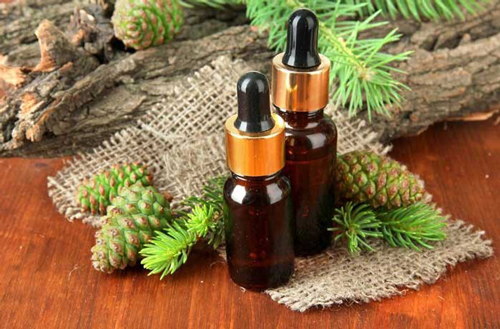The Powerful Aspirin Alternative Your Doctor Never Told You About

Aspirin’s long held promises are increasingly falling flat. A natural, safer and more effective alternative to this synthetic drug has been known about for at least 15 years!
There is a clear and present danger linked with the use of aspirin as well as several clinically proven alternatives that feature significant side benefits as opposed to aspirin’s many known side effects.
More and more evidence has accumulated indicating that aspirin’s risks outweigh its benefits. Most notably, a 15-year Dutch study published in the journal Heart found that among 27,939 healthy female health professionals (average age 54) randomized to receive either 100 mg of aspirin every day or a placebo the risk of gastrointestinal bleeding outweighed the benefit of the intervention for colorectal cancer and cardiovascular disease prevention in those under 65 years of age.
Of course, aspirin is not alone as far as dangerous side effects are concerned. The entire non-steroidal anti-inflammatory (NSAID) category of prescription and over-the-counter drugs is fraught with serious danger. Ibuprofen, for instance, is known to kill thousands each year, and is believed no less dangerous than Merck’s COX-2 inhibitor NSAID drug Vioxx which caused between 88,000-140,000 cases of serious heart disease in the five years it was on the market (1999-2004). Tylenol is so profoundly toxic to the liver that Dr. Michael Murray asked in an editorial he wrote: “Is it Time for the FDA to Remove Tylenol From the Market?”.
Given the dire state of affairs associated with pharmaceutical intervention for chronic pain issues, what can folks do who don’t want to kill themselves along with their pain?
Pine Bark Extract (Pycnogenol) Puts Aspirin To Shame

When it comes to aspirin alternatives, one promising contender is pycnogenol, a powerful antioxidant extracted from French maritime pine bark, backed by over 40 years of research. Amazingly, it has been discovered that this natural substance may have value for over 80 health conditions.
In 1999, a remarkable study published in the journal Thrombotic Research found that pycnogenol was superior (i.e. effective at a lower dosage) to aspirin at inhibiting smoking-induced clotting, without the significant (and potentially life-threatening) increase in bleeding time associated with aspirin use. The abstract is well worth reading in its entirety:
“The effects of a bioflavonoid mixture, pycnogenol, were assessed on platelet function in humans. Cigarette smoking increased heart rate and blood pressure. These increases were not influenced by oral consumption of pycnogenol or aspirin just before smoking. However, increased platelet reactivity yielding aggregation 2 hours after smoking was prevented by 500 mg aspirin or 100 mg pycnogenol in 22 German heavy smokers. In a group of 16 American smokers, blood pressure increased after smoking. It was unchanged after intake of 500 mg aspirin or 125 mg pycnogenol. In another group of 19 American smokers, increased platelet aggregation was more significantly reduced by 200 than either 150 mg or 100 mg pycnogenol supplementation. This study showed that a single, high dose, 200 mg pycnogenol, remained effective for over 6 days against smoking-induced platelet aggregation. Smoking increased platelet aggregation that was prevented after administration of 500 mg aspirin and 125 mg pycnogenol. Thus, smoking-induced enhanced platelet aggregation was inhibited by 500 mg aspirin as well as by a lower range of 100-125 mg pycnogenol. Aspirin significantly (p<0.001) increased bleeding time from 167 to 236 seconds while pycnogenol did not. These observations suggest an advantageous risk-benefit ratio for pycnogenol.”
As emphasized above, pycnogenol unlike aspirin, did not significantly increase bleeding time. This has profound implications, as aspirin’s potent anti-platelet/blood thinning properties can also cause life-threatening hemorrhagic events. If this study is accurate and pycnogenol is more effective at decreasing pathologic platelet aggregation at a lower dose without causing the increased bleeding linked to aspirin, then it is clearly a superior natural alternative worthy of far more attention by the conventional medical establishment and research community than it presently receives.
Not Just A Drug Alternative

Pycnogenol, like so many other natural interventions, has a wide range of side benefits that may confer significant advantage when it comes to reducing cardiovascular disease risk. For instance, here are some facts about pycnogenol:
– Blood Pressure Reducing/Endothelial Function Enhancer: A number of clinical studies indicate that pycnogenol is therapeutic for those suffering with hypertension. Pycnogenol actually addresses a root cause of hypertension and cardiovascular disease in general, namely, endothelial dysfunction (the inability of the inner lining of the blood vessels to function correctly, e.g. fully dilate). It has been shown to prevent damage in microcirculation in hypertensive patients, as well as reducing the dose of blood pressure drugs in hypertensive patients, including hypertensive diabetic patients. It has even been found to reduce intraocular hypertension found in glaucoma patients.
– Anti-Inflammatory Effects: There is a growing appreciation among the medical community that inflammation contributes to cardiovascular disease. Several markers, including C-reactive protein are now being fore grounded as being at least as important in determining cardiovascular disease risk as various blood lipids and/or their ratios, such as low-density lipoprotein (LDL). Pycnogenol has been found to reduce C-reactive protein in hypertensive patients. Pycnogenol has been found to rapidly modulate downward (inhibit) both Cox-1 and Cox-2 enzyme activity in human subjects, resulting in reduced expression of these inflammation-promoting enzymes within 30 minutes post-ingestion. Another observed anti-inflammatory effect of pycnogenol is its ability to down-regulate the class of inflammatory enzymes known as matrix metalloproteinases (MMPs). Pycnogenol has also been found to significantly inhibit NF-kappaB activation, a key body-wide regulator of inflammation levels whose overexpression and/or dysregulation may result in pathologic cardiovascular manifestations. Finally, pycnogenol has been found to reduce fibrinogen levels, a glycoprotein that contributes to the formation of blood clots; fibrinogen has been identified as an independent risk factor for cardiovascular disease.
– The Ideal Air Travel Companion: A compelling body of research indicates that pycnogenol may be the perfect preventive remedy for flight-associated thrombosis, edema, and concerns related to radiotoxicity and immune suppression.
yogaesoteric
October 24, 2017
